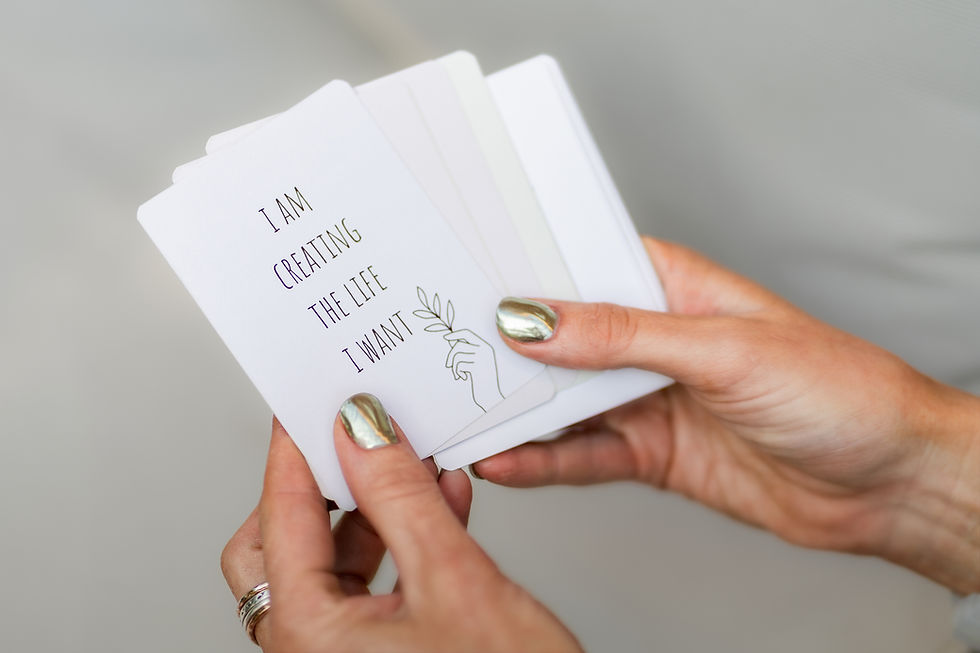When Family Isn’t Safe: A Trail Tool for Navigating Family Wounds
- Oct 7, 2025
- 2 min read
Family is supposed to mean safety. Belonging. A place where you can exhale and be yourself.
But for many people I sit with, that’s not the story. Family is complicated. Sometimes it’s where the deepest wounds are made. And yet the world keeps telling us blood is thicker than water, forgive and forget, but they’re your parents.
So when family isn’t safe, what then?
The Myth of “Perfect Families”
It’s easy to believe everyone else grew up in houses filled with warmth and acceptance. Scroll through social media and it’s birthday tributes, holiday gatherings, smiling faces.
What doesn’t make it to the feed: the shouting behind closed doors. The silence of estrangement. The shame of feeling unwanted in the place that was supposed to hold you.
If that’s your story, hear this: you’re not broken. You’re not dramatic. You’re not wrong for struggling with it. You’re just human, living with wounds that cut deep.

The Hidden Cost of Unsafe Family
When family isn’t safe, the impact doesn’t vanish when you turn 18. It echoes.
Trust feels shaky. You might question whether closeness is safe.
Boundaries feel impossible. Saying no feels like betrayal, even when yes is unbearable.
Self-worth gets tangled. You might carry the belief you were “too much” or “not enough.”
Grief shows up. Not for what was lost, but for what never was.
These are not flaws in you. They’re the scars of trying to grow roots in rocky ground.
Trail Tool: Navigating Family Wounds
There isn’t a neat three-step fix. But there are ways to steady yourself when family hurts:
Name your truth. Instead of gaslighting yourself (“It wasn’t that bad”), allow the sentence: This wasn’t safe for me. Naming is the first form of reclaiming.
Practise boundaries. Boundaries aren’t punishment; they’re protection. It’s okay if yours look different from others — less contact, no contact, or choosing when and how you show up.
Find chosen family. Belonging isn’t limited to blood. Friends, communities, sisterhoods — these are the kin you get to choose.
Honour your grief. Grieving the family you didn’t have is valid. Light a candle, write it down, cry it out. Rituals help mark what’s real.
Seek support. Therapy is where you don’t have to perform loyalty or minimise pain. It’s where your story is held without judgement.
Why This Matters
When family isn’t safe, you can feel like you’re living without a map. Everyone else seems to have one — Sunday lunches, Christmas gatherings, the fallback of “going home.” You’re left navigating alone.
But here’s the truth: safety is something you can build. Belonging is something you can choose. And healing doesn’t mean pretending the past didn’t happen, it means finding steadier ground to stand on now.
You’re allowed to protect yourself. You’re allowed to rewrite what family means.
The Forest’s Reminder
Even at the forest edge, not every tree survives. Some grow twisted around what they had to endure.
And yet, the canopy still holds. Roots intertwine. New growth finds its way through.
So do we.
If you’re walking away from unsafe family ties, know this: you are not alone, and you get to build belonging on your own terms.
Sarah x



Comments